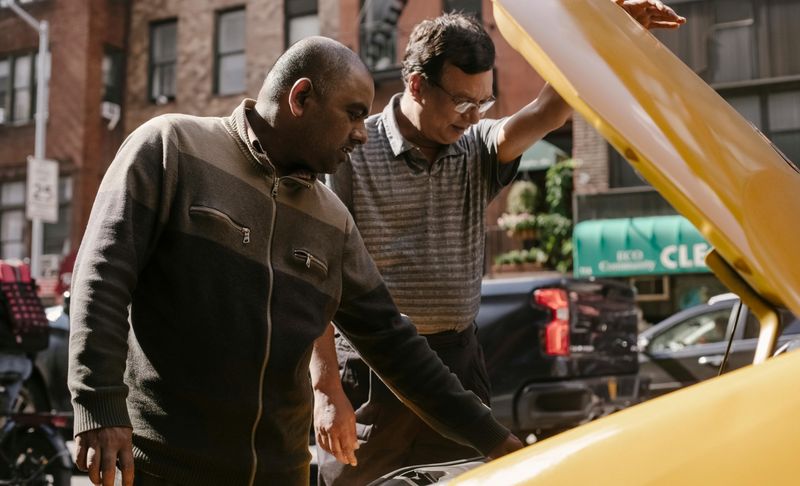10 Life Situations That Prove the Rich and the Working Class Don’t Live in the Same Reality

Money doesn’t just buy things—it buys entirely different experiences of life. The gap between the wealthy and the working class isn’t just about bank accounts; it’s about how people navigate everyday challenges, make decisions, and plan for the future.
From handling emergencies to choosing schools, these two groups might as well be living on different planets.
1. Job Loss or Sudden Income Changes

Losing a job feels like falling off a cliff when you’re working class. Rent is due in two weeks, the fridge needs restocking, and health insurance vanishes overnight. Every morning starts with frantic job applications, resume tweaking, and growing dread about what comes next.
For the wealthy, job loss reads more like an unwanted plot twist than a disaster. Investment portfolios keep generating income, savings cushion the blow, and there’s actual time to think strategically about the next move. Some even treat it as a sabbatical or career pivot opportunity.
This isn’t about work ethic or intelligence—it’s pure math. When your survival depends on every paycheck, losing income means immediate crisis. When you have multiple income streams and substantial reserves, it becomes a temporary setback. The stress levels aren’t even comparable between these two realities.
2. Handling Unexpected Expenses

Picture this: your car breaks down on Tuesday morning. For someone living paycheck to paycheck, this moment triggers instant panic. Bills get shuffled around like a desperate game of Tetris, credit cards get maxed out, and suddenly groceries become a luxury item.
Meanwhile, across town, someone else faces the same car trouble. They simply transfer money from savings, schedule the repair, and maybe complain about the inconvenience over brunch. No sleepless nights, no juggling which bill to pay late, no borrowing from family.
The difference isn’t just having money—it’s about having breathing room. Working-class families often spiral into debt from a single unexpected cost, while wealthy households absorb the same shock without missing a beat. One group enters survival mode; the other barely adjusts their lifestyle. Same problem, completely different universes.
3. Managing Free Time

Ever notice how differently people use their downtime? After working two jobs or a grueling shift, most working-class folks just want to collapse. Free time becomes recovery time—binge-watching shows, scrolling phones, or catching up on sleep that work stole from them.
Wealthy individuals approach leisure completely differently. Their free hours get invested: tennis lessons, language classes, networking dinners, meditation retreats. They’re building skills, connections, and personal brands even when they’re supposedly relaxing.
The exhaustion gap explains everything. When your job drains you physically and mentally, leisure means shutting down to recharge. When work is less physically demanding and you’re not constantly stressed about money, you have energy left to invest in self-improvement.
One group recovers from work; the other prepares for more success. It’s not laziness versus ambition—it’s energy economics shaped by completely different daily realities.
4. Making Big Purchases (Cars, Appliances, Tech)

When the washing machine breaks, two very different shopping experiences unfold. Working-class families start hunting for deals, comparing financing options, and calculating whether they can squeeze another year out of the dying appliance. Every purchase becomes a strategic negotiation with their budget.
Wealthy shoppers skip the drama entirely. They buy quality items outright, often upgrading before things break. No payment plans, no comparison shopping across five stores, no lying awake wondering if they can afford the extended warranty.
This purchasing power gap compounds over time. Cheap items break faster, creating an expensive cycle of constant replacement. Quality products last longer and perform better, but they require upfront cash most families don’t have. The irony? Being poor costs more in the long run. One group lives in perpetual replacement mode while the other invests once and moves on.
5. Education Decisions

College decision time reveals starkly different priorities. Working-class students calculate everything: in-state tuition, scholarship deadlines, living at home to save money, working through school. They’re choosing the most affordable path that might—hopefully—lead somewhere good without drowning them in debt for decades.
Wealthy families barely glance at price tags. Their conversations center on prestige, alumni networks, study abroad programs, and which school opens the best doors. Student loans aren’t part of the equation because college gets paid outright, often years in advance.
The opportunity gap starts here and never closes. One student graduates debt-free with a degree from a school where professors know senators, while another spends twenty years paying off loans from a decent state school. Both worked hard, both earned degrees, but their starting lines for adult life sit miles apart based solely on family wealth.
6. Navigating Health Issues

Something feels off with your health. If you’re working class, you probably ignore it first—hoping it goes away, Googling symptoms at midnight, waiting until it becomes unbearable. Even with insurance, copays and deductibles make every doctor visit a financial calculation. Preventative care feels like a luxury for people with better insurance.
Wealthy individuals schedule appointments immediately. They have concierge doctors who answer texts, specialists on speed dial, and wellness programs that catch problems early. Health isn’t something they gamble with because cost never enters the decision-making process.
This healthcare divide literally determines who lives longer and healthier. Catching diseases early versus waiting until emergency room visits become necessary creates vastly different outcomes. Money doesn’t just buy better treatment—it buys time, early detection, and peace of mind that working-class families simply cannot afford, even when working full-time with benefits.
7. Parenting and Raising Kids

Raising kids looks completely different depending on your tax bracket. Working-class parents focus on stability: keeping food on the table, finding affordable childcare, making sure homework gets done between work shifts. Every activity gets budgeted—sports fees, school supplies, birthday parties all require careful planning and sometimes tough choices.
Wealthy parents operate in enrichment mode. Their kids get private tutors, travel abroad, attend expensive camps, and participate in multiple extracurriculars simultaneously. Money never limits opportunities; if anything, they’re choosing between too many options rather than struggling to afford any.
The childhood experience gap sets trajectories early. One kid learns resilience and budgeting by necessity; the other gains confidence, connections, and resume-building experiences that open elite doors. Both sets of parents love their children equally and work hard, but resources create parallel childhoods that barely resemble each other.
8. Investing and Saving

Ask someone working class about saving, and they’ll tell you about trying to set aside whatever’s left after bills—which is often nothing. Their money sits in checking accounts earning zero interest because minimum balance requirements for better accounts feel impossible to maintain. Retirement accounts remain a distant dream when today’s expenses barely get covered.
Wealthy individuals flip this script entirely. They pay themselves first, automatically moving money into investments before anything else. Their money works for them through stocks, real estate, and compound interest, generating more wealth while they sleep.
This isn’t about discipline—it’s about having enough to invest in the first place. You can’t save what you don’t have, and you can’t invest when every dollar is already spoken for. Meanwhile, those with excess wealth watch it multiply, creating an ever-widening gap that has nothing to do with effort or character.
9. Vacation Planning

Vacation planning reveals economic realities fast. Working-class families save all year for one trip, hunting for deals months in advance, traveling off-season, packing sandwiches to avoid restaurant costs. Every aspect gets budgeted down to the gas money, and there’s genuine anxiety about affording it all even after months of planning.
Wealthy families book trips on a whim. Last-minute flights to Europe? Sure. Spontaneous weekend at a resort? Why not. They choose destinations based on experience and preference, not price tags and payment plans. Travel happens frequently, not as a once-a-year carefully orchestrated event.
The vacation gap isn’t just about where you go—it’s about the stress surrounding it. One family returns exhausted from worrying about costs; the other returns refreshed and already planning the next adventure. Same activity, entirely different psychological experience shaped purely by financial reality.
10. Responding to Opportunity

When opportunity knocks, economic reality determines who can answer. Working-class individuals often hesitate—that startup job sounds exciting, but it pays less than their current stable position. Moving for a better job? Can’t afford the relocation costs. Starting a business? Not without guaranteed income and health insurance for the family.
Wealthy people jump on opportunities quickly. They have safety nets that allow calculated risks: family money to fall back on, connections that open doors, resources to relocate or start ventures without risking homelessness. Their network itself becomes currency, providing opportunities others never even hear about.
Risk tolerance isn’t about courage—it’s about consequences. Taking a chance when failure means eviction is terrifying. Taking the same chance when you have a trust fund and family connections is just strategic career building. Same opportunities, completely different ability to seize them based entirely on financial cushion and social capital.

Comments
Loading…